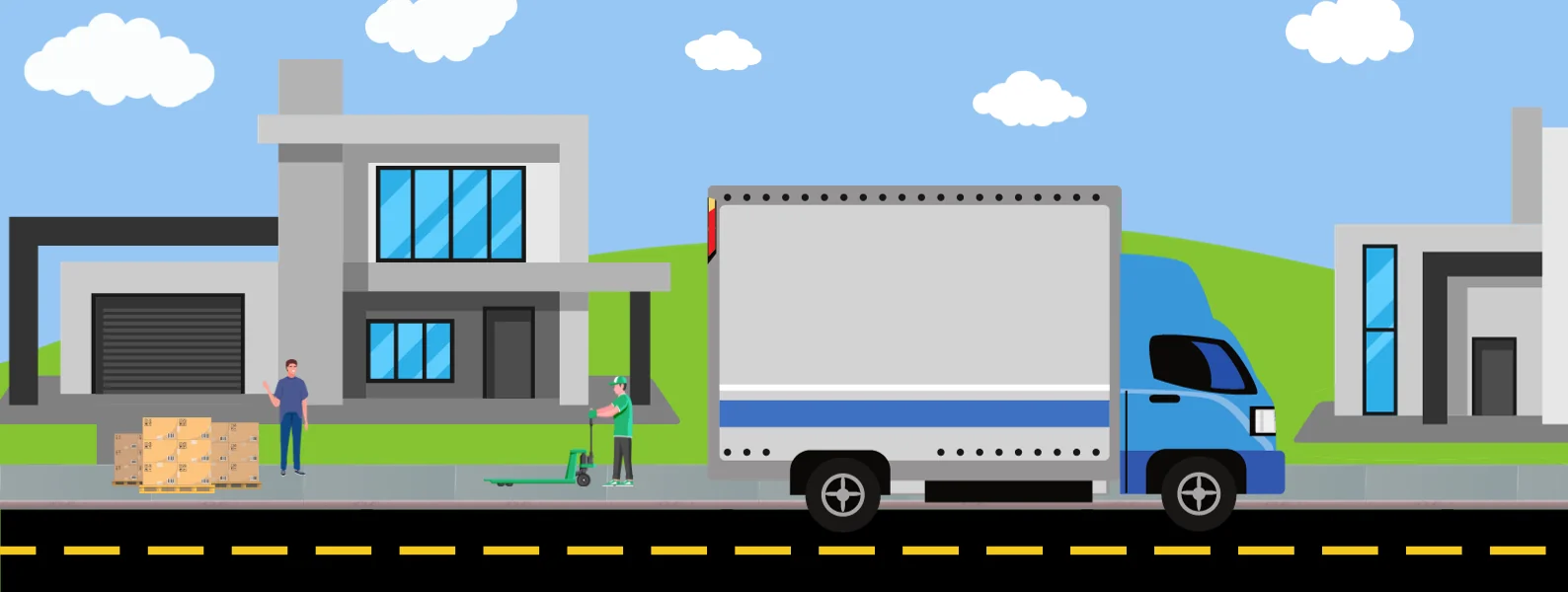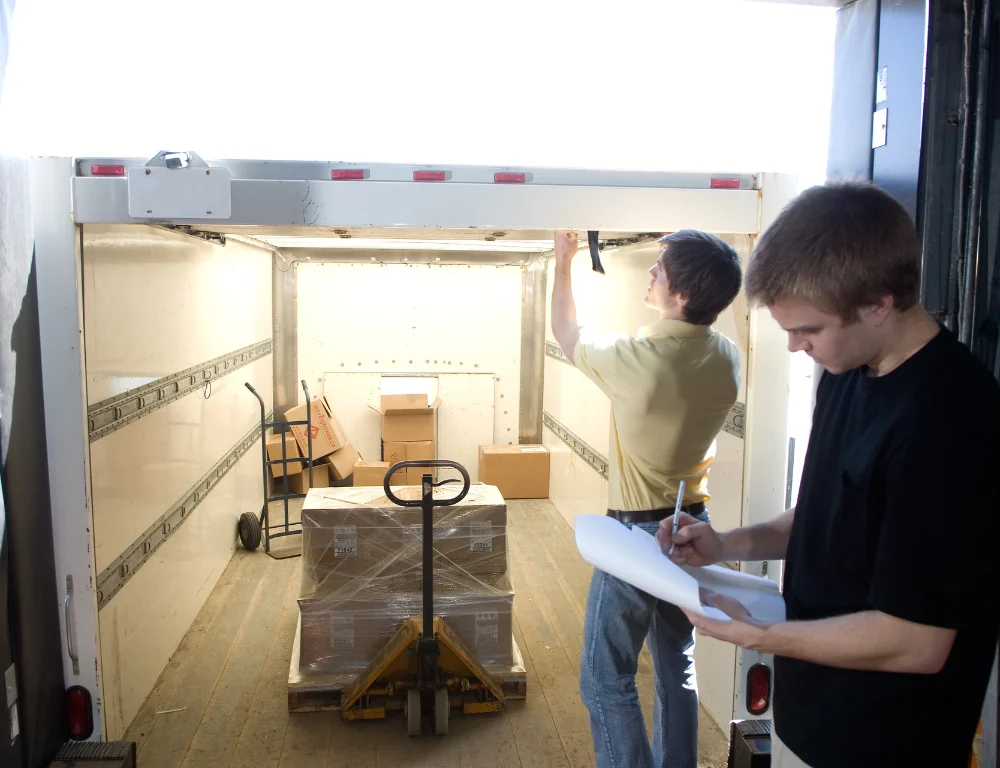
Understanding Freight Pickup Policies: What You Need to Know
Getting your freight picked up can be nerve-wracking for first-time shippers. Not only do you have a giant trailer coming your way, but you have so much to remember and do when the truck arrives.
Understanding freight pickup policies is crucial to avoid delays, extra charges, and other common issues. Being aware of what to expect can help you prepare adequately and ensure your shipment proceeds smoothly.
We have compiled important guidelines about freight pickup that you should be aware of before the truck arrives to start your shipment’s journey to its destination.
Basic Freight Pickup Policies
Let’s go over a few basics about pickups:
Pickups are requests, not guarantees: Drivers may be unable to pick up your shipment at the scheduled time and place if space fills up or the driver runs out of time.
Rolling over appointments: Pickup appointments can be rolled over to another day if needed.
Service days: Some places, like rural areas, are serviced only on certain days.
Time frames: Pickups occur during the afternoon, between 12 p.m. and 5 p.m. Drivers spend the morning making deliveries, so their trucks are empty for pickups later in the day.
Pickup Methods
There are several ways to have your freight picked up by the driver when it arrives at your location. In addition to curbside pickup, the other methods may incur additional charges and fees.

Curbside Pickup
This is the standard method drivers use for freight pickup. The driver will pick up freight left at the curb, the end of a driveway, or at loading docks and terminals—accessible places where a freight truck can park. The freight must be properly packaged and ready to depart; the driver will not allow you to finish packaging or move your freight down to the curb.
Additional services like a liftgate may be required if freight is picked up or delivered to a residential address or a business without a dock. You or your team must be equipped to move your freight by hand or by forklift into the trailer, as the driver is not obligated to help you. Additional charges may apply if the driver moves or lifts any freight into the trailer.
Inside Pickup
If a driver picks up your freight from anywhere other than the curbside, dock, or the end of a driveway, you will be charged for inside pickup. The driver picks up freight beyond the roadside to either the doorway of a residential home or the beginning of a driveway.
If the freight is for a commercial building, the driver can take it from just a little way into the loading dock. This is a good option if you don’t have a team that doesn’t have forklifts or enough hands to move the freight alone. The driver must have access to a pallet jack to perform inside pickup.
However, inside pickup does not include packaging and loading the freight into the trailer. That duty still lies solely with the receiver, not the driver. If you need someone to come inside a residential or commercial building and load your freight for you, another additional charge will be applied.
Limited Access Pickup
A limited access location is any place that restricts access to the area from trucks. This includes:
- Locations with a gate and/or guard
- Places not open to the general public
- An area with no access to a loading dock
- Locations too small for a regular truck to enter
- Remote areas far away from cities or towns
- Crowded areas
Some examples of limited access areas include:
- Military bases
- Laboratories
- Hotels
- Restaurants
- Libraries
- Government buildings
- Nursing homes
- Residential and rural areas
The driver will need more time to park and load the freight in a restricted area, resulting in additional charges. If you don’t warn your driver that the pickup location is limited access, you could face added fees, delays, or miss your pickup entirely and have to reschedule at another location or route.
If a driver arrives at a location and finds that it has limited access, they will charge you later. Therefore, it’s important to know in advance if your location is limited-access. The best way to determine this is by checking your location on Google Maps. This will give you an idea of whether a semi-truck can enter, pick up, and leave the area without any issues. You can also ask your FreightCenter agent to help you determine if your area has limited access.
White Glove Services

- High-value, luxury items
- Fragile items like glass and ceramic products
- Extremely heavy items like antique furniture
The driver will come inside your building for white-glove pickup and retrieve the freight to be brought back to their depot to package it. They will also move it into the trailer and do the reverse later for delivery. You can add specialty assessorials like padded vans, blanket wrap services, and liftgates.
White glove services can be added to your booking, though there will be additional charges. Please speak to your FreightCenter agent if you wish to include this service to avoid loading freight yourself.
Missed Pickup
When a driver arrives to pick up freight, a person must be present to hand over the Bill of Lading (BOL) they received after booking and to sign for the shipment. If neither the BOL nor the person signing the freight over is present at the scheduled date and time, the driver will not wait around; they have other pickups to do.
If this happens, you’ll need to reschedule your pickup to another day. To reschedule a pickup with FreightCenter, call our Customer Support team at (800) 716-7608. Also, call our Customer Support team if a driver never arrives to pick up your shipment on your scheduled date and time. Remember: some freight companies will charge a re-pickup fee for extra miles and time.
What To Avoid During Pickup
Here are a few things to avoid when scheduling pickups:
Avoid same-day pickups if possible.
Again, even if you request same-day pickup, there’s no guarantee your driver can make the scheduled time. If you must get your shipment picked up that day, and your location has a loading dock, please allow a 4-hour window so FreightCenter can dispatch a driver in time.
Avoid residential pickups on Friday.
There are several reasons for this, but most of them involve labor laws restricting drivers and warehouse employees from working on weekends, as well as the limited demand and cost of running logistics companies 24/7.
Avoid pickups before a holiday.
Drivers and warehouse staff typically get major holidays off, so your shipment will sit in the trailer for an additional day, which could be bad for any temperature-sensitive and time-sensitive items.

Common Issues and Solutions
To wrap things up, let’s review some common issues you could face during a scheduled freight pickup and how to prevent or solve them.
Incorrect Packaging
Ensure your freight is correctly packaged and ready for pickup. You must have packaged the freight yourself; the driver will not do it for you. If the packaging is incomplete, the driver will not wait for you to repair or finish packaging it.
Missing Documentation
When the driver arrives, have all necessary documents, including the BOL, ready to present. You’ll need them to sign off on the freight. Missing documentation can result in missed pickups and delays.
Limited Access Surprises
Check your pickup location in advance to see if a semi-truck can drive in and park without worries. Use Google Maps or consult with a FreightCenter agent to determine if your location is considered limited access to avoid unexpected charges.
FreightCenter Can Answer Any Questions about Freight Pickup Policies!
Being well-prepared for freight pickup can make the process smooth and stress-free. Pickups can be hectic, but FreightCenter will support you along the way! We can reschedule missed pickups, explain services like inside delivery and limited access in detail, and answer any other questions or concerns you may have. Our friendly Customer Support team has your back.
Try our free online quote tool or call (800) 716-7608 to prepare for your next freight pickup!


